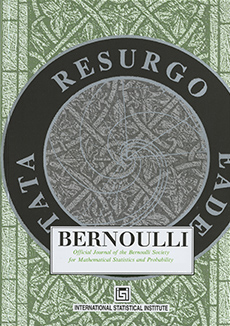Abstract
Langevin diffusion processes and their discretizations are often used for sampling from a target density. The most convenient framework for assessing the quality of such a sampling scheme corresponds to smooth and strongly log-concave densities defined on $\mathbb{R}^{p}$. The present work focuses on this framework and studies the behavior of the Monte Carlo algorithm based on discretizations of the kinetic Langevin diffusion. We first prove the geometric mixing property of the kinetic Langevin diffusion with a mixing rate that is optimal in terms of its dependence on the condition number. We then use this result for obtaining improved guarantees of sampling using the kinetic Langevin Monte Carlo method, when the quality of sampling is measured by the Wasserstein distance. We also consider the situation where the Hessian of the log-density of the target distribution is Lipschitz-continuous. In this case, we introduce a new discretization of the kinetic Langevin diffusion and prove that this leads to a substantial improvement of the upper bound on the sampling error measured in Wasserstein distance.
Citation
Arnak S. Dalalyan. Lionel Riou-Durand. "On sampling from a log-concave density using kinetic Langevin diffusions." Bernoulli 26 (3) 1956 - 1988, August 2020. https://doi.org/10.3150/19-BEJ1178
Information





